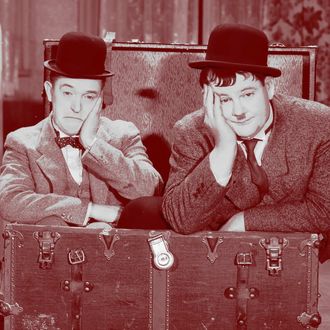
A lot of us know someone who is a bit more guilt-prone than they should be, liable to nose-dive into a shame spiral over seemingly minor incidents. A new study hints at some of the effects this trait could have in the workplace or the classroom: Guilt-prone people may be less likely to want to team up on projects out of fear they will disappoint their colleagues.
In a study recently published in the Journal of Personality and Social Psychology, Scott Wiltermuth of USC and Taya Cohen of Carnegie Mellon conducted three experiments online and two involving face-to-face interactions in which researchers first gauged participants’ level of guilt-proneness and then asked them, in a variety of ways, whether they wanted to team up with a partner on a task, such as answering some quiz-style questions. If they teamed up, the money they earned would depend on both their performance and their partners’, while if they didn’t it would depend only on theirs.
Overall, the studies suggested that “highly guilt-prone people may avoid forming interdependent partnerships with others whom they perceive to be more competent than themselves,” simply because they’re afraid they’ll screw up and feel guilty about it. People less prone to feeling guilty were less bothered by the prospect of being a deadweight team member.
It’s easy to see how this could lead to trouble at work or school. Some people with low self-esteem, for example, may rate themselves as less capable than potential partners even when this isn’t the case, or even when they have important skills to offer in a team setting. In cases like these, guilt may be standing directly in the way of productive partnerships.




